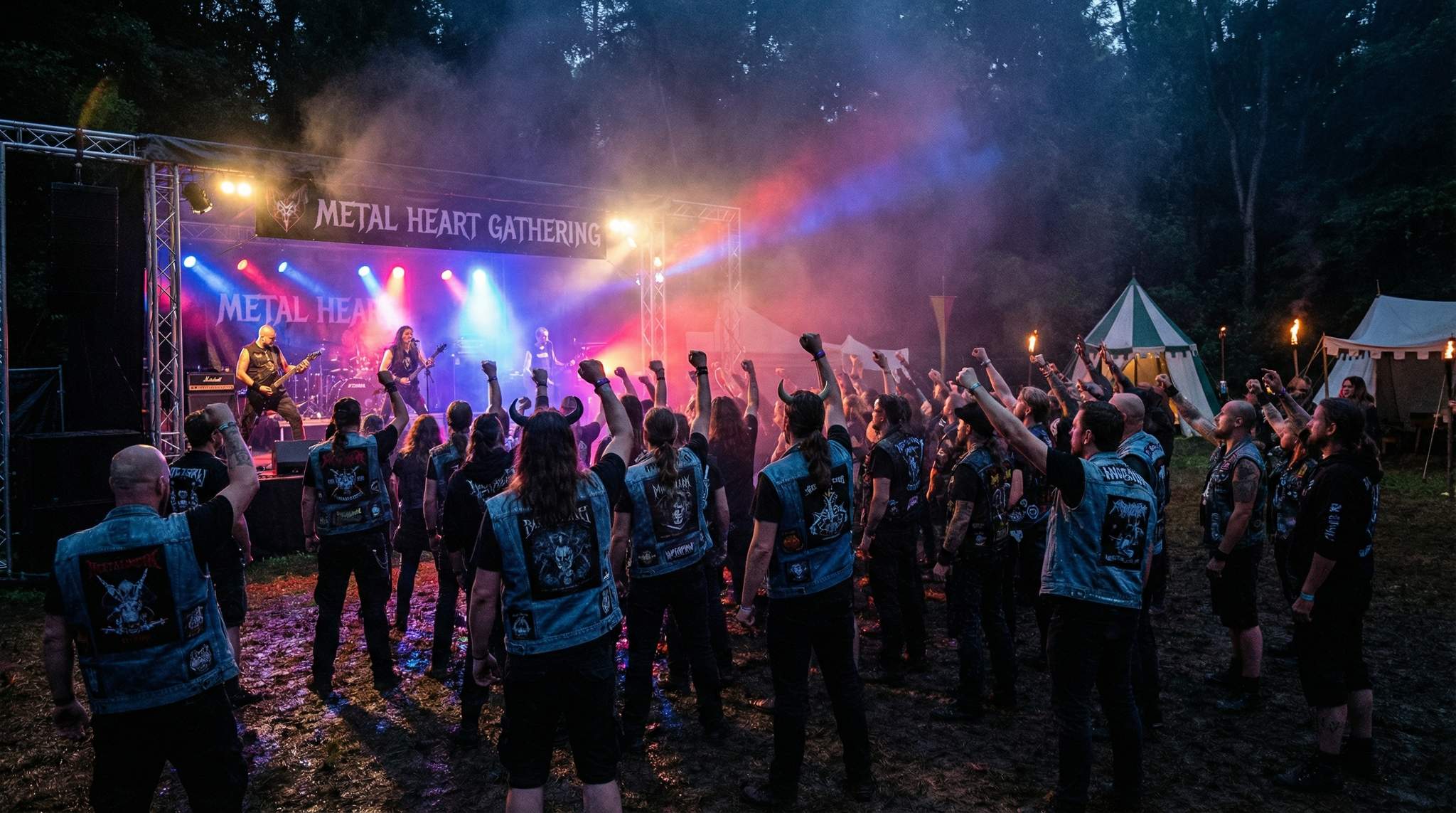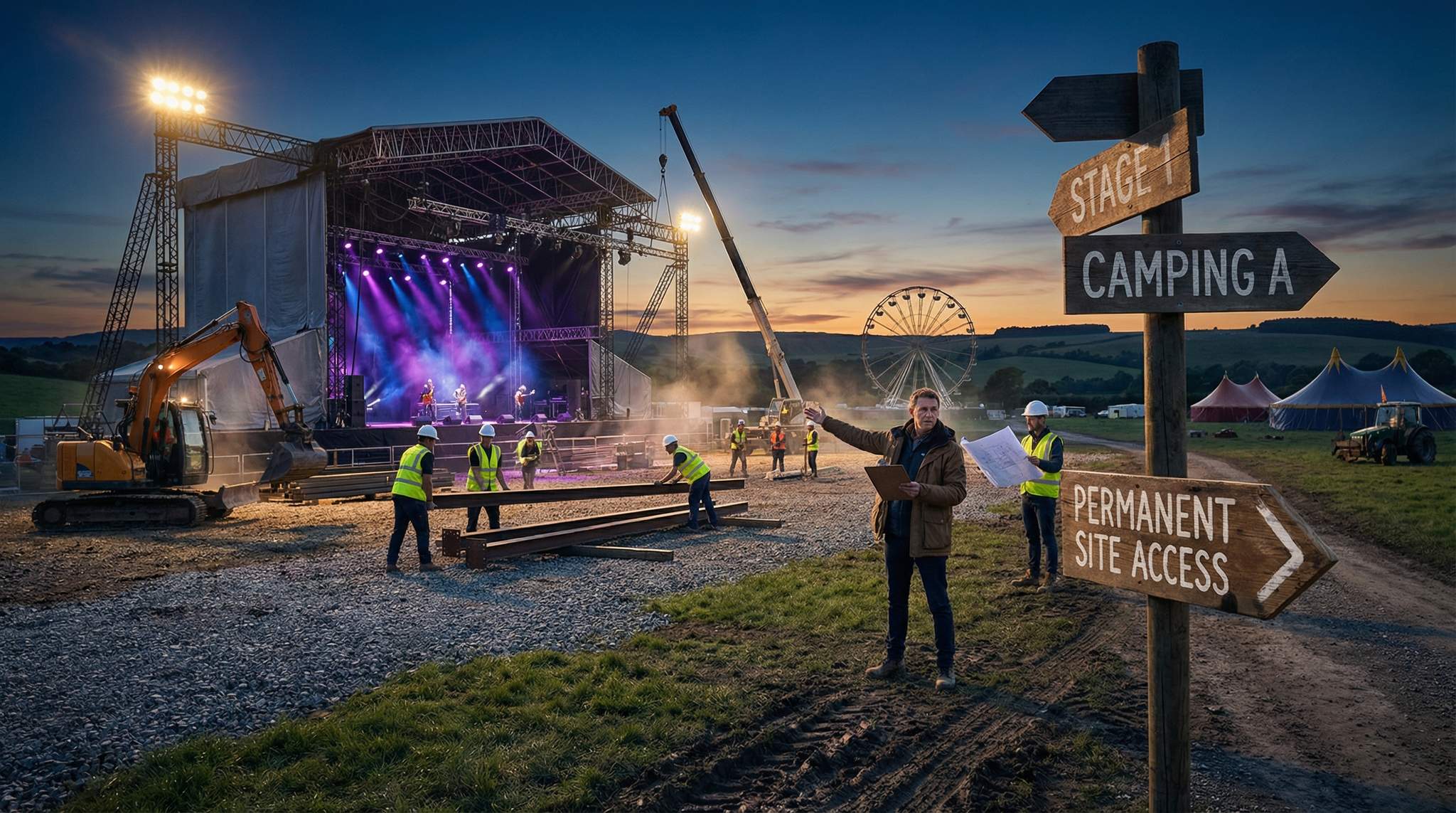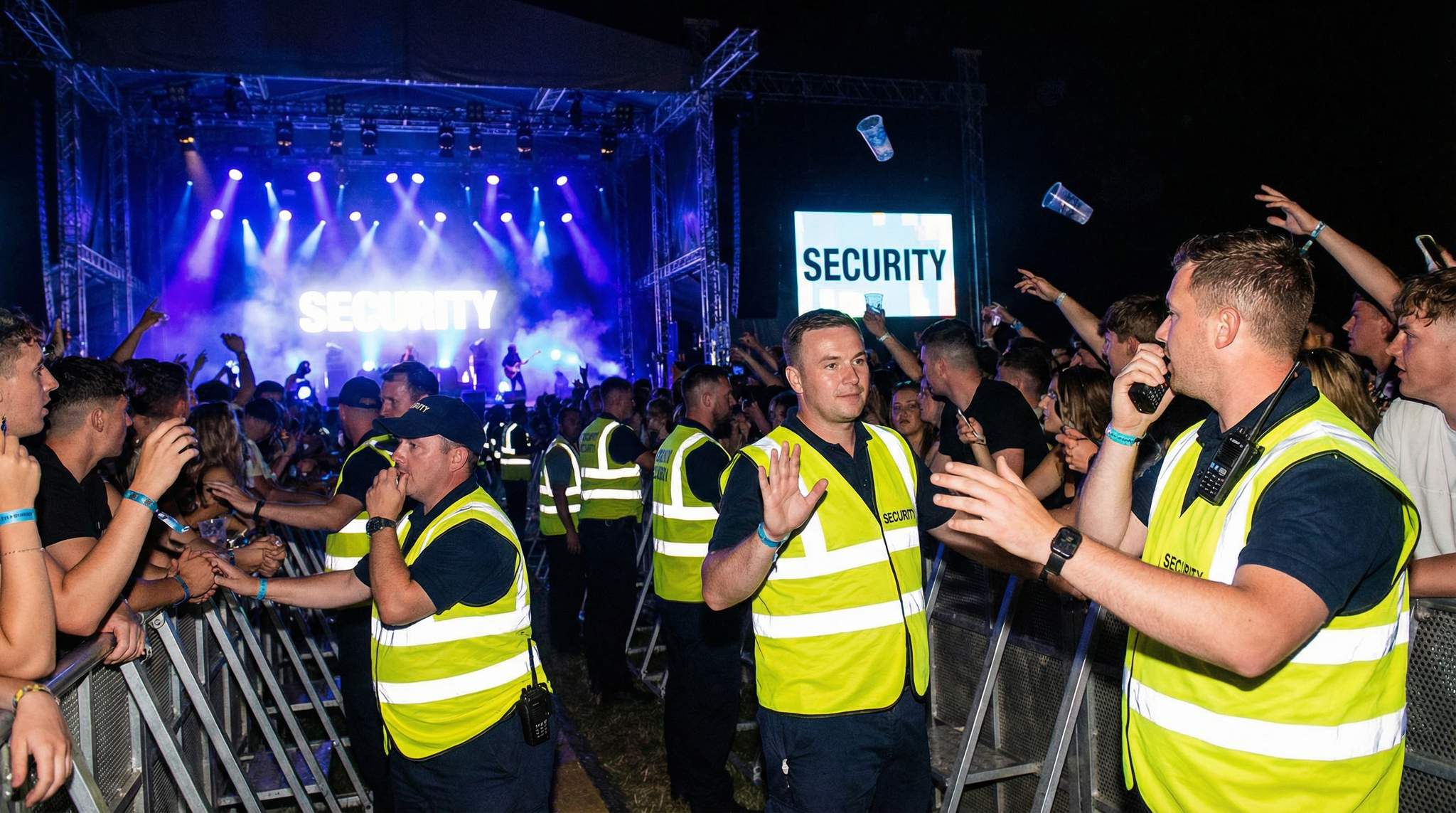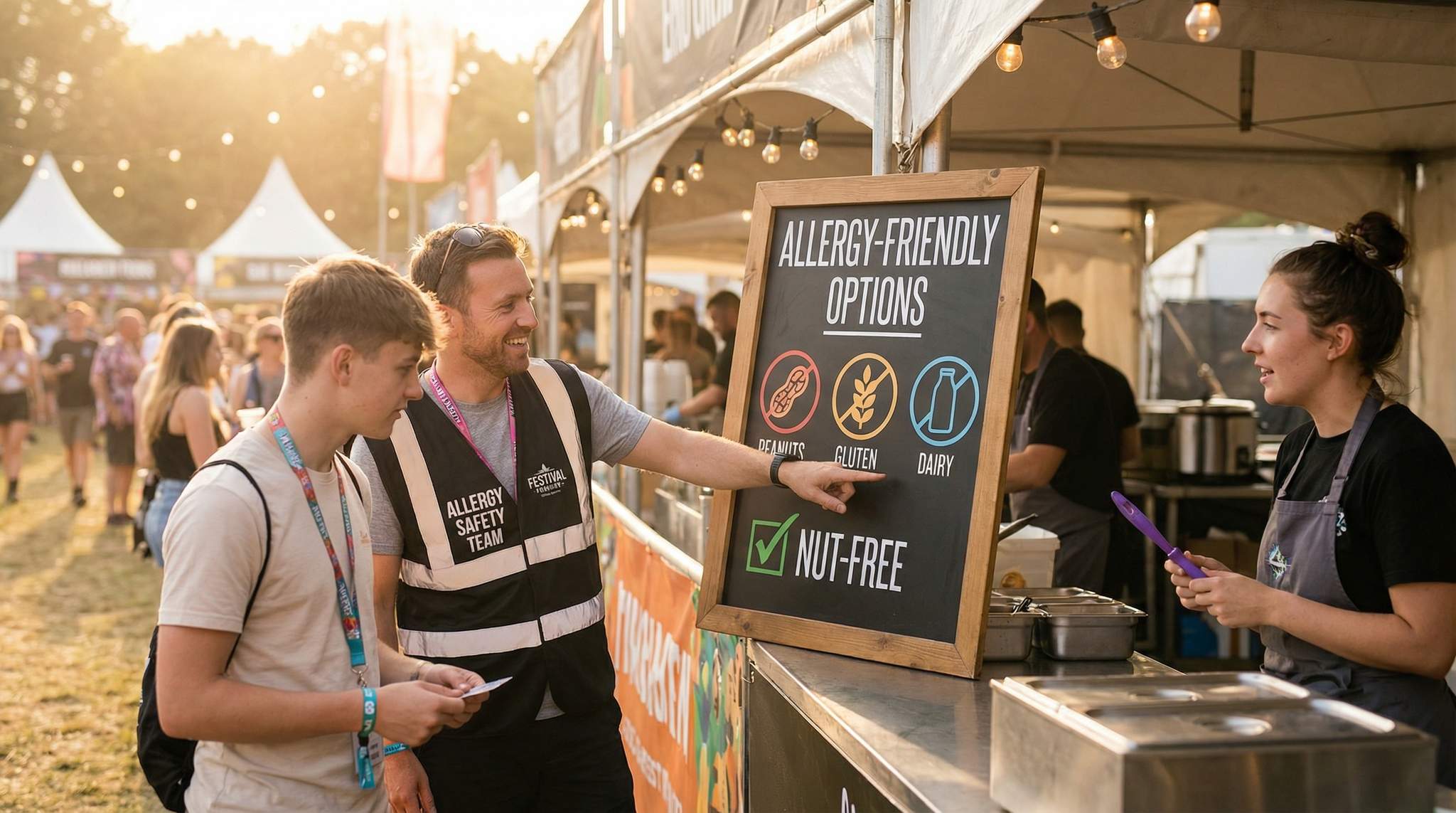Embrace the Rise of Niche Festivals
There’s a festival for nearly every passion nowadays – from craft beer and cosplay to yoga and vintage cars. In recent years, niche festivals have surged in popularity as people seek out unique, personalized experiences. Rather than attending one-size-fits-all events, fans flock to gatherings where they can connect with others who share their specific interests and subcultures.
This trend has opened the door for creative promoters to cater to hyper-focused audiences – and when done well, the payoff can be remarkable. Some of the world’s biggest events actually began as niche gatherings. For example, Wacken Open Air, a heavy metal festival in a small German village, started in 1990 with just 800 attendees. Today, that once-tiny meet-up swells to around 80,000 metalheads, briefly turning its host village into one of the largest cities in the region each summer. Similarly, San Diego Comic-Con began as a humble comic fan convention of 300 people in 1970 – now it’s a pop culture juggernaut attracting about 130,000 attendees and global media attention. These success stories prove that focusing on a specialized community can build extraordinary loyalty and growth over time.
Know Your Niche Audience Inside and Out
Behind every great niche festival is a deep understanding of its audience. Organizers should immerse themselves in the community’s culture, values, and quirks. This means doing your homework – join the forums, attend local meet-ups or smaller conventions, and talk directly with potential attendees. If you’re planning a festival for a particular subculture, listen to what that community is buzzing about. Often, niche festivals are born when devotees feel mainstream events don’t represent them. The most successful specialized events are usually created by fans for fans. By being part of the target community (or consulting those who are), you’ll gain insight into their expectations. For instance, a fan-centric approach is exactly how one legendary metal festival came to be – feeling their genre was underrepresented at the time, a group of metalheads took it upon themselves to create an event that celebrated their music round-the-clock. Understanding your niche audience’s priorities lets you design a festival that truly reflects their passions.
Also, be mindful of the community’s norms and sensitivities. Every subculture has unwritten rules – whether it’s respecting cosplay etiquette at an anime convention or maintaining eco-conscious practices at a sustainability expo. Showing that you “get” the community builds trust. On the flip side, nothing alienates hardcore fans faster than an organizer who appears to be cashing in without respecting the culture. Avoid tokenism and stereotypes; instead, involve real community members in your planning process (invite advisors or form a fan committee) to keep your festival authentic and credible.
Craft a Tailored Festival Experience
A niche audience comes to your festival expecting everything to align with the theme they love. Exceed those expectations by tailoring every aspect of the experience. Start with programming: curate your lineup, content, or attractions to feature exactly what die-hard fans crave (and little they don’t). If it’s a music festival for a specific genre, book artists squarely from that scene – including emerging talent beloved by aficionados. If it’s a themed pop culture or fandom event, secure special guests and content that a true fan would fully appreciate. Consider the Sundance Film Festival as a case study: by focusing solely on independent cinema and emerging filmmakers, Sundance attracts a dedicated community of cinephiles and industry professionals who return year after year. They come knowing they’ll get a carefully curated selection of indie films plus panel discussions and workshops that speak to their interests. On a different scale, Comic-Con International built its reputation by giving comic and pop culture fans exclusive experiences they couldn’t get elsewhere – from sneak-preview film trailers to Q&A sessions with beloved creators and stars. That kind of targeted programming turns a festival into a must-attend event for the niche audience.
Beyond the main content, think about complementary activities and details that will delight your specific crowd:
Planning a Festival?
Ticket Fairy's festival ticketing platform handles multi-day passes, RFID wristbands, and complex festival operations.
- Interactive Experiences: Provide workshops, demos, contests or meet-ups tailored to the niche. (For example, a cosplay contest at an anime festival, home-brew competitions at a craft beer fest, or trivia tournaments at a sci-fi and gaming convention.)
- Thematic Food & Merch: Carry the theme into what attendees eat, drink, and take home. Offer vendors or food trucks that match their tastes – perhaps medieval-style fare at a Renaissance fair, vegan and gluten-free options at a wellness festival, or merch booths selling niche collectibles and apparel that fans will love.
- Atmosphere & Décor: Design the venue space to immerse attendees in the culture. This could mean period-appropriate set pieces, art installations, or ambient music and visuals that create a sense of belonging. Small touches like signage in the community’s slang or staff costumes can make die-hard fans feel right at home.
- Community Showcases: Incorporate your attendees’ own talents and contributions. Many niche communities are active creators too, so give them a platform – maybe a fan art gallery, an open-mic stage, or community film screenings – to celebrate their creativity. This not only enriches the content but also makes attendees feel personally invested in the event.
The key is to deliver the kind of experience that a casual outsider might not fully “get,” but your target fans will rave about. When attendees see that the festival was made for them, they’ll reward you with incredible loyalty.
Just remember to keep quality high – niche audience or not, basic festival elements like good sound, safe lighting, and smooth logistics still matter. One common mistake is assuming fans will endure anything just to be there. In truth, today’s festival-goers (even super-fans) have high standards for production value and comfort. Don’t let the niche focus become an excuse for poor execution on the fundamentals.
Choose the Right Venue and Scale
Selecting a venue for a niche festival is about matching the setting to the community’s expectations. First, consider size: Does the audience prefer an intimate gathering or a sprawling spectacle? Many specialized communities actually thrive in smaller, close-knit environments where they can easily mingle. In fact, some niche festivals deliberately cap their attendance to preserve a certain ambiance. For example, the boutique Kallida music & arts festival in the UK limits itself to only about 400 attendees on a country estate, creating what feels like an exclusive house-party vibe for its dedicated crowd. On the other hand, if your niche has a massive following (like comic fans or heavy metal devotees), you might need a larger venue or outdoor grounds – but you can still design pockets within a big event that feel personal and on-theme.
Think about what venue type best aligns with your theme. A folk music or medieval-history festival might shine in an open field or historic castle grounds, whereas an e-sports or anime convention might feel more at home in a modern exhibition center or arena. Evaluate the location as well: If your target community is local (say, a regional cultural festival), an accessible hometown venue could boost comfort and turnout. If it’s a niche that people will travel for – like an international cosplay expo or a destination yoga retreat – then proximity to airports, hotels, and transportation becomes key.
Logistics are equally crucial. Ensure the venue can support your community’s needs – ample parking or shuttle service for a car enthusiast meetup, robust Wi-Fi and plenty of charging stations for a tech/gaming crowd, or quiet workshop rooms for a literary or wellness audience. Always plan with the attendee’s perspective in mind: families attending a niche kids’ festival will appreciate stroller-friendly paths and baby-changing areas, while hardcore music fans at an underground metal fest might care more about great acoustics and on-site camping. Matching these details to the audience makes a huge difference in their comfort and satisfaction.
Also, keep scalability and safety in view. If your niche event starts small, have a growth plan – know how you could expand capacity or infrastructure in future years if demand explodes. At the same time, avoid the trap of overscaling too soon. It’s usually wiser to sell out a smaller venue and create buzz than to overestimate attendance and end up with a half-empty space (and budget troubles). A festival that grows alongside its community tends to keep its soul intact. And no matter the size, always prioritize attendee safety and basic comfort: provide adequate sanitation, medical services, security staff, and contingency plans for bad weather or other emergencies. Specialized crowd or not, these fundamentals will protect your festival’s reputation.
Need Festival Funding?
Get the capital you need to book headliners, secure venues, and scale your festival production.
Marketing: Targeted Outreach to Your Tribe
When it comes to marketing a niche festival, surgical precision beats broad strokes. Identify where your potential attendees already congregate – both online and offline – and speak their language. Start by leveraging social media and online forums popular with that community. For a niche music genre, this might mean engaging in dedicated Facebook groups, subreddit threads, or Discord channels where fans geek out about their favorite artists. For a fandom or subculture event, you might focus on visual platforms like Instagram and TikTok if cosplay or art is big, or Twitter if rapid news and memes drive that community. Authenticity is paramount: craft your messaging and visuals to reflect insider knowledge. An in-joke or reference only true fans understand can go a long way to signal “this festival is for us.”
Beyond digital outreach, tap into on-the-ground networks. Partner with fan clubs, local hobby shops, or niche interest meetups. If you’re organizing a skateboard culture festival, for instance, collaborate with skate shops and popular skateboarding YouTubers or podcasters who already influence your audience. Sometimes micro-influencers within the community can be more impactful than generic celebrities – a passionate niche blogger, DJ, or cosplayer may have a smaller following, but their audience is exactly your target market and trusts them. Consider offering these folks VIP access or a role at the event (like hosting a stage or workshop) in exchange for helping promote the festival. That way, it feels like a genuine partnership rather than just advertising, and their endorsement carries real weight with the community.
Don’t overlook traditional channels if they make sense for your niche. Old-school flyers or posters placed in the right context (university campuses, comic book stores, vinyl record shops – wherever your crowd hangs out) can still be effective. Community radio shows, niche podcasts, or specialized magazines can get the word out directly to enthusiasts. Some organizers also find success doing “preview” appearances at related events to draw interest. For example, if there’s a large general gaming convention in your region and you’re launching a smaller retro gaming festival, secure a small booth or host a classic games mini-tournament there. By giving a taste of your festival at a bigger event, you’ll attract exactly the people who would appreciate it, and you build credibility through association.
Crucially, whatever channels you use, engage with the community rather than just marketing at them. Encourage word-of-mouth by creating shareable moments and content. This could be as simple as a hashtag contest (e.g. fans post about what obscure band they want to see at your fest) or as involved as a pre-festival meet-and-greet for early ticket buyers. Treat your first adopters and loyal attendees as insiders – maybe start an online group or newsletter just for ticket-holders to give them exclusive updates and behind-the-scenes peeks. Not only does this hype them up, it also transforms attendees into ambassadors who feel proud to spread the word.
Remember, niche audiences are often tightly connected with each other, whether in online communities or local circles. A good reputation within that circle will amplify itself – but any disappointment will spread like wildfire. So cultivate goodwill from day one. Be responsive to questions and feedback on social channels, and maintain open, friendly communication up to and through the event. Building a positive relationship with a specialized community is one of the most powerful marketing assets you can have.
Budgeting and Risk Management for Specialized Events
Niche festivals can be incredibly rewarding, but they also require shrewd budgeting and careful risk planning. By nature, a highly specialized event might attract a smaller crowd than a mainstream festival – at least at the start – so budget with realistic expectations. Outline all your essential costs (venue, permits, equipment, talent, insurance, staffing, etc.) and be conservative when projecting ticket sales, especially for a first-time or boutique event. It’s often wise to secure sponsorships or partnerships within the niche’s industry to help cover costs. Sponsors for a niche festival don’t have to be mega-corporations; in fact, they’re often more effective when they’re brands that the community already loves. A craft brewing supply company might sponsor a home-brew beer fest, or an indie comic publisher could fund part of a comics convention. These aligned partners not only provide financial support but also add credibility and extra appeal for your attendees.
When allocating funds, prioritize the elements that matter most to your audience. If you’re hosting a niche music festival, you might invest more in that perfect genre-specific headliner or a top-notch sound system, and less on extravagances that your attendees won’t really miss. Conversely, a niche wellness retreat might splurge on renowned instructors and serene décor rather than on high-end pyrotechnics or elaborate stages. Knowing what your audience values (because you’ve done your homework on their expectations) lets you put resources into the wow factors that will make them feel the ticket price was absolutely worth it.
Even with perfect planning, things can go sideways – that’s where risk management comes in. Small niche events are not immune to big problems, so always have contingency funds and backup plans. What if an overseas niche band can’t get visas or cancels last-minute? Line up a local replacement and communicate the change honestly to ticket-holders. What if the specialized equipment for your gaming tournament fails on the day? Have technical support on standby and perhaps a low-tech backup activity to keep folks entertained. Also consider external risks: a freak storm could threaten an outdoor event, or a sudden venue issue could arise. Have insurance where appropriate, and think through Plan B scenarios for your mission-critical elements (stage power, headliner no-shows, etc.). It’s better to brainstorm “What will we do if X happens?” in advance than to be caught scrambling in the moment.
A critical lesson from past festivals is that overpromising and under-delivering will wreck your reputation. This is doubly true with passionate niche communities who can feel deeply betrayed by a bad experience. One infamous example in recent memory was a luxury island festival that sold itself on grand exclusive experiences but ended up delivering chaos and cheese sandwiches – an extreme case, but it underscores the point. Never market a fantasy that you can’t realistically execute. It’s far better to be honest and modest in your promises and then over-deliver on quality than to hype up expectations and disappoint the people who believed in you. If anything does change or go wrong, transparency and quick action go a long way. Attendees might forgive unforeseen setbacks if you acknowledge them and offer solutions (like refunds, discounts, or sincere apologies), but they won’t forgive feeling duped or ignored.
Finally, consider success in terms of community building, not just profit. Sure, you need to balance the books, but the first year or two of a niche festival might be more about breaking even and gaining traction than making money. And that’s okay. If you deliver an amazing experience, you are investing in brand loyalty that can pay off hugely down the line. Those attendees will come back next time and likely bring friends, especially as word-of-mouth grows. Plan for the long game – some niche festivals stay small for a few editions and then suddenly explode in popularity once the buzz reaches critical mass. By balancing ambition with realism and always honoring the trust of your community, you’ll set your specialized festival up for sustainable growth and longevity.
Cultivate Community and Belonging
One of the greatest strengths of niche festivals is the tight-knit community they foster. As an organizer, you have a unique opportunity to nurture this sense of belonging and turn your event into more than just a festival – it can become an annual reunion for like-minded people. Encourage attendee interaction and camaraderie wherever you can. Simple gestures like starting a festival Facebook group or Discord server for attendees months in advance can spark connections even before day one. At the event, facilitate ways for people to meet and bond – perhaps a welcome mixer, themed ice-breaker games, or arranging the campsite into zones by interest. When people form real friendships and memories at your festival, they’re far more likely to return next time (and bring others along). In the best cases, your festival might even become the heartbeat of that community, where newcomers are welcomed and veterans feel a sense of pride and ownership.
You can also involve the community in shaping the festival’s future. Solicit feedback post-event – passionate niche attendees will have no shortage of opinions and ideas. Listen to them. Their suggestions might inspire your next big improvement or a cool new attraction. Some festivals even let fans vote on certain elements, like choosing a theme for next year’s event or picking one of the headline acts from a shortlist. Finding appropriate ways to give your audience a voice makes them feel deeply invested in the festival’s success. Over time, you might find your attendees want to contribute directly – don’t be afraid to let them. Whether it’s volunteering on staff, hosting a fan-run discussion panel, or curating an exhibit of community artwork, these contributions can enhance the event for everyone and reinforce that the festival truly belongs to its fans.
Lastly, celebrate the culture and the people that make your festival possible. Highlight attendee stories and achievements – maybe feature a “fan of the year” who embodies the spirit of the event, or showcase community creations on your website and social channels. These personal touches show that your festival isn’t just about tickets and schedules, but about real individuals coming together. Building traditions around the community can also strengthen bonds (for example, a group photo at the end of each festival, or an annual award voted by attendees). By shining the spotlight back on the fans, you reinforce why the festival exists in the first place: to honor and enjoy this special community.
Passing the Torch
Organizing a niche festival is a labor of love. It’s also one of the most fulfilling endeavors in the live events world when you see your carefully targeted audience light up with joy because finally an event speaks directly to them. Seasoned producers know that feeling well – and now it’s your turn to experience it. By understanding a specialized community deeply and tailoring your festival to serve them, you can build not just a one-off event, but a lasting cultural gathering that attendees will cherish year after year.
Stay genuine, be adaptable in the face of challenges, and continuously learn from your audience’s feedback. The next generation of festival producers has the chance to take niche communities to new heights, creating safe havens of creativity, passion, and connection. In doing so, you’ll keep the festival scene vibrant and diverse – ensuring there’s always a place for every fan to celebrate what they love.
Frequently Asked Questions
Why are niche festivals becoming more popular?
Niche festivals are surging in popularity because attendees increasingly seek unique, personalized experiences over one-size-fits-all events. Fans flock to these gatherings to connect deeply with others who share specific interests and subcultures. Success stories like Wacken Open Air and San Diego Comic-Con demonstrate that focusing on specialized communities fosters extraordinary loyalty and growth.
How should organizers market a niche festival to specialized audiences?
Marketing a niche festival requires surgical precision by identifying where potential attendees congregate, such as specific Discord channels, subreddits, or local hobby shops. Organizers should leverage micro-influencers within the community who hold trusted voices rather than generic celebrities. Engaging authentically with fans and creating shareable moments helps transform attendees into ambassadors who drive word-of-mouth promotion.
What factors determine the right venue for a niche event?
Selecting a venue involves matching the setting to the community’s specific expectations and size preferences. Some events, like the Kallida festival, cap attendance to maintain an intimate vibe, while others require expansive grounds. Organizers must ensure logistics support specific needs, such as robust Wi-Fi for gaming crowds or quiet workshop rooms for literary audiences.
How can festival organizers tailor the experience for a specific subculture?
Organizers tailor the experience by curating lineups and interactive elements that align strictly with the theme, such as cosplay contests or home-brew competitions. Thematic food, merchandise, and immersive décor should reflect the community’s tastes. Providing platforms for community showcases, like fan art galleries or open-mic stages, further deepens attendee investment and satisfaction.
What are the benefits of securing sponsorships for niche festivals?
Sponsorships help cover essential costs while adding credibility when partners align with the community’s interests. Instead of generic corporations, niche festivals benefit from working with brands the audience already loves, such as an indie comic publisher funding a convention. These partnerships provide financial support and enhance the attendee experience through relevant products and services.
How does community involvement improve festival planning?
Involving the community builds trust and ensures the event authentically reflects the subculture’s values and norms. Organizers should listen to forums, invite advisors, or form fan committees to avoid tokenism and stereotypes. Soliciting feedback and allowing fans to vote on themes or acts makes attendees feel personally invested in the festival’s long-term success.





